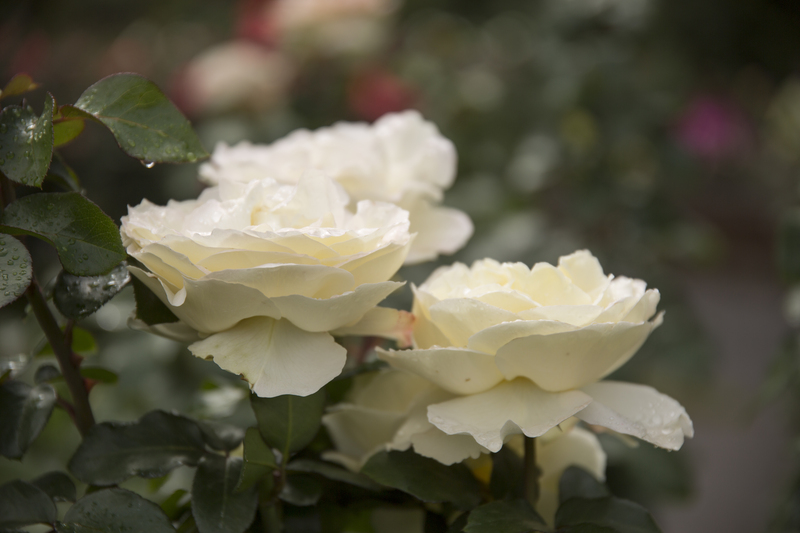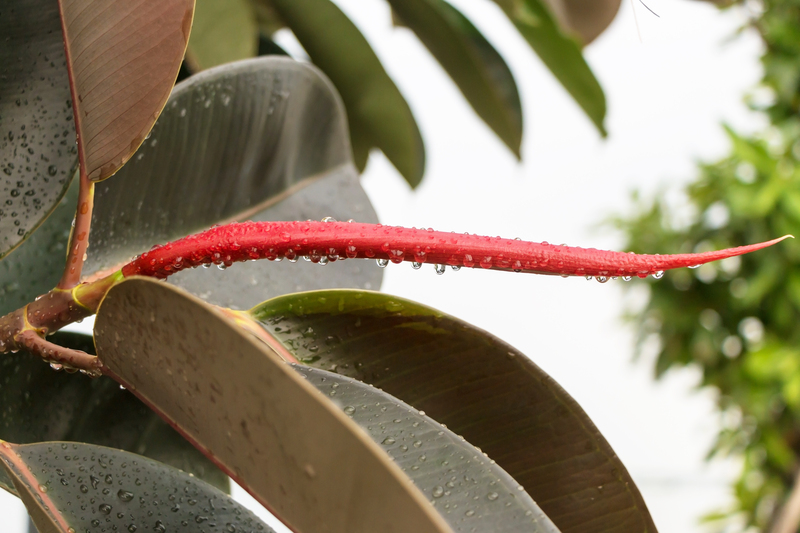Perfecting Your Herb Cultivation Techniques Today
Posted on 29/05/2025
Perfecting Your Herb Cultivation Techniques Today: A Comprehensive Guide
Growing herbs at home offers a rewarding experience, filling your kitchen and garden with fresh flavors and enticing aromas. Perfecting your herb cultivation techniques is no longer reserved for seasoned horticulturists; even beginners can master the art of herb gardening with the right methods. In this guide, we delve into the essentials of herb cultivation, providing both practical tips and expert insights to help your garden flourish all year round.

Why Cultivate Herbs at Home?
- Freshness: Enjoy herbs at their peak freshness for cooking and wellness.
- Cost-effective: Save money compared to continually buying store-bought bundles.
- Health benefits: Grow organic, chemical-free herbs for maximum nutritional value.
- Sustainability: Reduce plastic waste and your carbon footprint.
- Therapeutic: Gardening is a mindful activity and a stress reliever.
Understanding the Basics of Herb Cultivation
Choosing the Right Herbs
Not all herbs are created equal--some thrive in outdoor beds, while others can flourish on your sunny kitchen sill. Perfecting your herb growing techniques begins by choosing herbs that suit your space, climate, and culinary needs.
- Easy-to-grow herbs: Basil, mint, chives, thyme, and parsley are excellent for beginners.
- Sun-loving herbs: Rosemary, oregano, sage, and lavender prefer plenty of sunlight.
- Shade-tolerant herbs: Cilantro, mint, chervil, and lemon balm tolerate partial shade.
Starting from Seeds vs. Seedlings
Should you sow seeds or buy young plants? Both options can yield impressive results. Growing herbs from seeds is budget-friendly and offers control over plant varieties, but requires more patience. Purchasing seedlings or small plants is quicker and more reliable for novice gardeners.
- Seedlings: Ideal for basil, rosemary, and slow-growers like oregano.
- Seeds: Perfect for fast-growers such as cilantro and dill; sow directly in pots or garden beds.
Soil and Containers: The Foundation of Herb Health
Choosing the Right Soil
- Well-draining soil is essential for successful herb cultivation, as most herbs dislike wet roots.
- Organic potting mixes are ideal for container gardening, while raised beds benefit from amended garden soil.
Container Selection and Placement
Whether growing herbs indoors or outdoors, containers provide flexibility and control over soil quality. Here are key tips for optimal container gardening:
- Choose pots with drain holes to prevent waterlogged roots.
- Size matters: Most culinary herbs thrive in 6-12 inch diameter pots.
- Grouping herbs: Combine herbs with similar watering needs for easy maintenance.
The Perfect Environment: Light, Water, and Humidity
Lighting Requirements
Perfecting your herb cultivation methods means understanding herbs' light preferences. Most require at least 6-8 hours of sunlight daily.
- South-facing windows are prime real estate for indoor herb gardens.
- Supplemental grow lights help during darker winter months or in low-light spaces.
- Containers may need repositioning to maximize sun exposure as seasons change.
Watering Techniques
Overwatering is the number one killer of indoor herbs. Mastering your herb cultivation techniques means watering thoroughly but infrequently--allow the top inch of soil to dry out before re-watering.
- Use a moisture meter or your finger to check soil dampness.
- Water early in the day to minimize fungal issues.
- Avoid waterlogging by emptying saucers under pots after watering.
Humidity and Air Circulation
While some herbs appreciate a bit of humidity, stagnant air can encourage disease. Keep your herbs happy and healthy by:
- Spacing pots to allow adequate airflow.
- Grouping pots on a humidity tray or using a room humidifier for Mediterranean varieties.
- Regularly checking for pests and mildew.
Fertilizing and Feeding Your Herbs
Most herbs are not heavy feeders. In fact, over-fertilization can reduce essential oil content, diminishing taste and aroma. Follow these guidelines for optimal herb care:
- Feed herbs every 4-6 weeks with a balanced liquid fertilizer diluted to half strength.
- Use organic options such as fish emulsion, seaweed extract, or compost tea for sustainable gardening.
- Avoid high-nitrogen fertilizers, especially for savory, aromatic varieties.
Pruning, Pinching, and Harvesting Your Herbs
Pinching for Bushiness
Regular pinching encourages bushier, more productive plants. For herbs like basil, pinch just above a pair of leaves once the plant is 6 inches tall. This stimulates lateral growth and a denser, healthier appearance.
Pruning Essentials
Perfect your herb gardening techniques by pruning herbs regularly. Trim back one-third of the plant's mass to promote vigorous regrowth. Remove flowering stems promptly (unless harvesting seeds) to keep herbs producing new leaves.
Harvesting Tips
- Harvest in the morning, after dew dries and before sun causes essential oil evaporation.
- Use sharp scissors or pruning shears to minimize plant damage.
- Never remove more than one-third of the plant at a time.
- Frequent harvesting encourages continual growth and prevents woodiness.
Pest, Disease, and Stress Management
Common Pests and Natural Control
- Aphids: Wash off with water or spray with insecticidal soap.
- Spider mites: Increase humidity and rinse foliage.
- Slugs and snails (outdoor beds): Use beer traps or hand-pick at night.
Disease Prevention
Most diseases stem from overwatering or poor air circulation. Always ensure:
- Good drainage in pots and beds.
- Avoiding overhead watering, especially in the evening.
- Prompt removal of diseased or yellowed leaves.
Handling Environmental Stress
Hot summers or chilly windowsills can stress herbs. Address environmental changes quickly to protect your plants:
- Move pots during extreme heat/cold.
- Use floating row covers for outdoor herbs in unpredictable weather.
- Adjust watering and fertilization as seasons change.
Advanced Herb Cultivation Techniques
Companion Planting
Mixing compatible herbs in the same pot or bed not only maximizes space but can also deter pests and enhance flavor. For example:
- Plant basil with tomatoes to improve tomato flavor and repel flies.
- Grow chives near carrots to deter aphids.
- Avoid pairing fennel with most other herbs as it can hinder their growth.
Hydroponic Herb Gardening
Embrace modern gardening by cultivating herbs hydroponically indoors. Benefits include rapid growth, year-round harvest, and minimal soil-borne pests.
- Use a simple Kratky system (static water) or invest in a hydroponic kit.
- Monitor nutrient solutions carefully to avoid deficiencies or excesses.
Season Extension and Overwintering
Maximize your harvest by employing season extenders:
- Use cold frames or row covers to stretch outdoor growing seasons.
- Pot up annual herbs and bring indoors before the first frost.
- Overwinter perennial herbs like rosemary indoors with adequate light and reduced watering.
Troubleshooting Common Herb Cultivation Problems
- Yellowing leaves? Check for overwatering or nutrient imbalances.
- Leggy growth? Increase sunlight or prune for density.
- Poor flavor? Fertilize less and ensure adequate sun for richer essential oils.
- Wilting? Inspect for root rot, pests, or underwatering.

Storing and Preserving Your Herb Harvest
Preserve the flavor of your garden year-round by drying, freezing, or infusing your herb harvest:
- Air drying: Hang small bunches in a cool, dry, and dark spot.
- Freezing: Chop herbs and freeze them in ice cube trays with olive oil or water.
- Oil/vinegar infusions: Create flavored culinary oils and vinegars with your fresh herbs.
Conclusion: Start Perfecting Your Herb Cultivation Today!
Mastering herb cultivation techniques is a journey of discovery, patience, and joy. By choosing the right varieties, providing the optimum environment, and refining your care methods, you'll enjoy a bountiful herb harvest regardless of your space or experience level. Whether your ambition is a windowsill of basil or a backyard filled with culinary delights, these herb growing tips empower you to cultivate success. Start perfecting your herb cultivation today--and savor the fresh difference in every meal!
```Latest Posts
Enriching Garden Environments for Dogs and Plants
Shape an Inviting and Safe Haven for Kid Explorers
Thriving Plants and Stylish Spaces: The Art of Container Gardening
Explore 5 Cost-Effective Ideas for a Stunning Low Maintenance Garden

